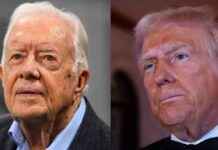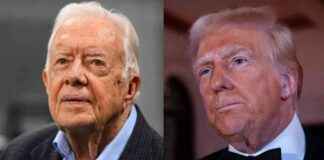The recent announcement by President Donald Trump to impose steep tariffs on Canada, Mexico, and China has sent shockwaves through the pharmaceutical and medical device industries. The move, set to take effect on Tuesday, threatens to exacerbate existing drug shortages, increase healthcare costs, and jeopardize the viability of generic drug manufacturers, according to warnings from various drug trade groups.
The U.S. currently faces a critical shortage of essential medications, ranging from injectable cancer therapies to generic drugs, which has forced hospitals and patients to ration their supply. This shortage has been further compounded by the high costs of prescription medications that many Americans struggle to afford.
Impact on Generic Drug Manufacturers
The U.S. heavily relies on other countries for pharmaceutical products, particularly generic drugs, which make up 90% of all prescriptions in the country. China, in particular, serves as a major supplier of active pharmaceutical ingredients (APIs) for both brand-name and generic drugs due to lower manufacturing costs. These APIs are crucial components of drugs that produce the desired therapeutic effects.
John Murphy, CEO of the Association for Accessible Medicines, which represents generic pharmaceutical companies, expressed concerns that the proposed tariffs could lead to a further increase in drug shortages. He emphasized that generic manufacturers operate on extremely low profit margins and would struggle to absorb additional costs, potentially forcing them out of the market.
Impact on Medical Device Manufacturers
In addition to pharmaceutical products, the U.S. also relies on overseas manufacturing for medical devices, with many key components and finished products sourced from countries like China, Mexico, and India. Tariffs on these countries could significantly impact the costs of medical devices, ultimately affecting patients and healthcare providers.
Intuitive Surgical, a manufacturer of robotic surgical systems, disclosed that a majority of its instruments and accessories are manufactured in Mexico. The company warned that tariffs on Mexico would increase its manufacturing costs and negatively impact its profit margins.
AdvaMed, the largest medical device association globally, has urged the Trump administration to exempt medical products from the tariffs. The group emphasized that import taxes could lead to shortages of critical medical technologies, higher prices for patients, and reduced investment in research and development.
The American Medical Manufacturers Association, which advocates for U.S. businesses that produce medical personal protective equipment (PPE), supports the tariffs on China and emphasizes the importance of increasing domestic production of these products. The group believes that tariffs are necessary to address China’s anti-competitive practices and safeguard U.S. supply chains and national security.
In conclusion, the imposition of tariffs on pharmaceutical and medical device imports could have far-reaching consequences for patients, healthcare providers, and manufacturers. It is essential for policymakers to carefully consider the potential impact on drug shortages, healthcare costs, and medical innovation before implementing such measures. Failure to do so may result in significant disruptions to the healthcare system and patient care.



















